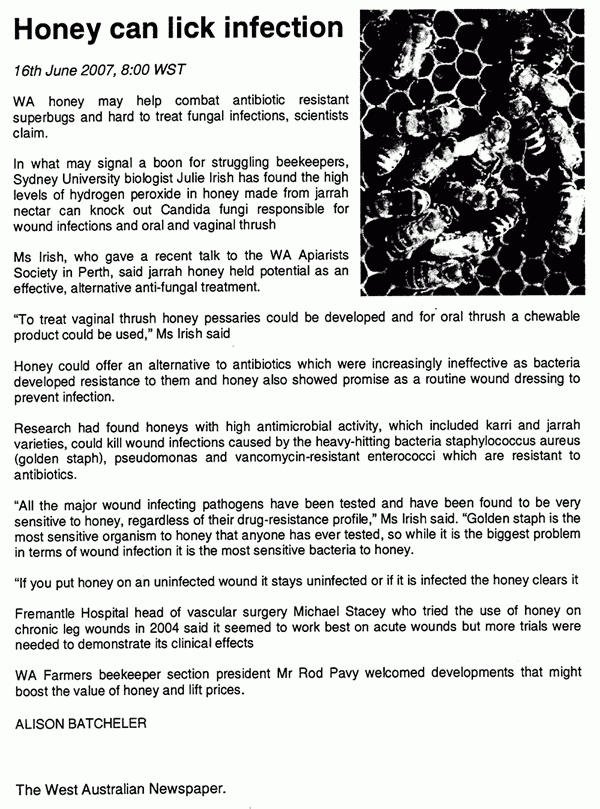WA honey may help combat antibiotic-resistant superbugs and hard to treat fungal infections, scientists claim.
In what may signal a boon for struggling beekeepers, Sydney University biologist Julie Irish has found the high levels of hydrogen peroxide in honey made from jarrah nectar can knock out Candida fungi responsible for wound infections and oral and vaginal thrush
Ms. Irish, who gave a recent talk to the WA Apiarists Society in Perth, said jarrah honey held potential as an effective, alternative anti-fungal treatment.
“To treat vaginal thrush honey pessaries could be developed and for oral thrush, a chewable product could be used,” Ms. Irish said Honey could offer an alternative to antibiotics which were increasingly ineffective as bacteria developed resistance to them and honey also showed promise as a routine wound dressing to prevent infection. Research had found kind of honey with high antimicrobial activity, which included karri and jarrah varieties, could kill wound infections caused by the heavy-hitting bacteria staphylococcus aureus (golden staph), pseudomonas and vancomycin-resistant enterococci which are resistant to antibiotics.
“All the major wound infecting pathogens have been tested and have been found to be very sensitive to honey, regardless of their drug•resistance profile,” Ms. Irish said. “Golden staph is the most sensitive organism to honey that anyone has ever tested, so while it is the biggest problem in terms of wound infection it is the most sensitive bacteria to honey.
“If you put honey on an uninfected wound it stays uninfected or if it is infected the honey clears it Fremantle Hospital head of vascular surgery Michael Stacey who tried the use of honey on chronic leg wounds in 2004 said it seemed to work best on acute wounds but more trials were needed to demonstrate its clinical effects
WA Farmers beekeeper section president Mr. Rod Pavy welcomed developments that might boost the value of honey and lift prices.
ALISON BATCHELER
